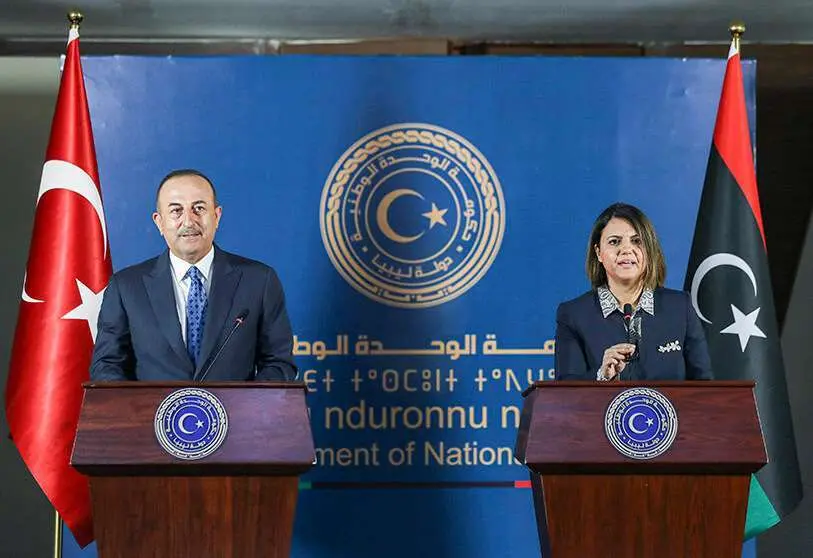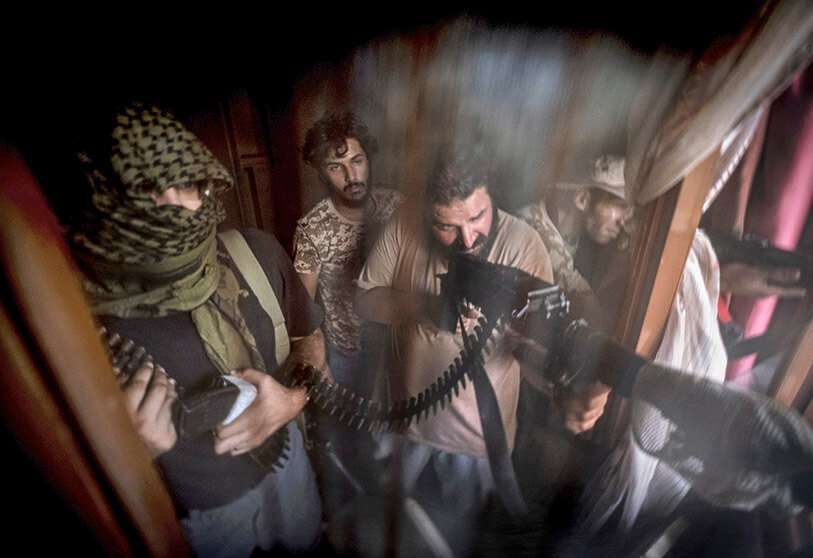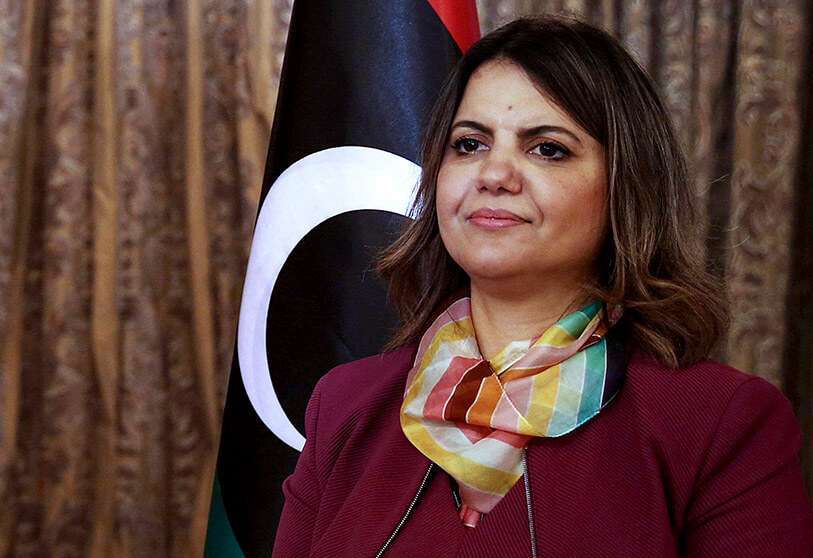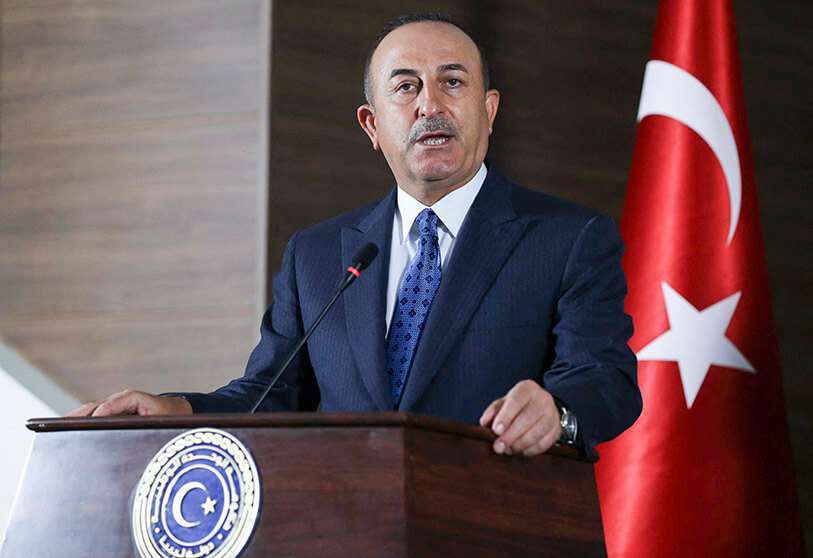Libya calls on Turkey to remove foreign fighters from its territory

A joint meeting was held on Monday between Libyan Foreign Minister Najla al-Manqoush and her Turkish counterpart Mevlut Cavusoglu to demand the withdrawal of all foreign forces and mercenaries from Libya.
Despite the end of fighting between the two sides in the Libyan conflict in the middle of last year, and the firmness of the ceasefire agreement, the country is still undermined by the influence and presence of foreign forces and mercenaries that the new authorities are striving to remove immediately from the country.
Libya's foreign minister, Najla al-Manqoush, called during this meeting with Cavusoglu for "the withdrawal of all foreign forces and mercenaries from Libya" as it approaches elections later this year.

According to a statement from the authorities' media office in Tripoli, Al-Manqoush said during a joint press conference after a meeting with the head of the national unity government, Abdul Hamid Dbeiba, that she "commended Turkey's support for the health sector in Libya in the face of the coronavirus, and confirmed the establishment of distinguished relations with Turkey in the interest of both countries.
Turkey's support to Libya's health sector in the face of the coronavirus, and confirmed the establishment of distinguished relations with Turkey in the interests of both countries.
The Libyan foreign minister also called on Turkey to "cooperate with regard to the implementation of the ceasefire agreement and the results of the Berlin conference, including the expulsion of foreign forces and mercenaries from Libyan lands in support of Libya's sovereignty".

Cavusoglu responded by saying that Turkish forces were in Libya as part of a training agreement reached with a previous administration in the North African country, adding that "there are those who equate our legal presence with foreign mercenary groups fighting in this country for money".
Turkish Foreign Minister Mevlut Cavusoglu said: "There are growing voices that want to equate Turkey's presence in Libya with other illegal groups. Cooperation within the framework of the MoU prevented Libya from descending into civil war, and our support paved the way for a chance for a ceasefire and the formation of a new unified political authority".
The Turkish foreign minister also affirmed his country's support for the National Unity Government to maintain Libya's security and stability, explaining that his meeting with the prime minister included a discussion on the maritime memorandum of understanding, its terms of reference and the steps, taken towards it in the future. He stated that the talks included the appropriate mechanism for the return of Turkish companies to resume their work in Libya.

Ankara also signed an agreement with the Government of National Accord to demarcate the maritime borders between the two Mediterranean countries. The two sides also signed a series of agreements aimed at strengthening cooperation, especially economic cooperation, between their two countries.
This comes at a time when the United Nations Support Mission in Libya is pushing for presidential and legislative elections to be held in the country in time to end the transitional phases Libya has experienced in recent years.
The UN envoy to Libya, Jan Kubisch, held intensive consultations with a number of Libyan officials, during which they emphasised the unification of the military establishment and the withdrawal of foreign forces from all Libyan territory in order to ensure the stability of the country.
Since the announcement of the UN mission to Libya last February, and the formation of the new executive authority, the foreign mercenary dossier in Libya has returned to the forefront, amid international demands to withdraw these elements from the country. According to diplomats, it is estimated that there are more than 20,000 foreign mercenaries in Libya.








